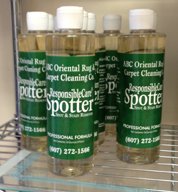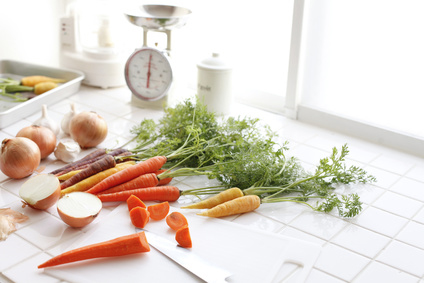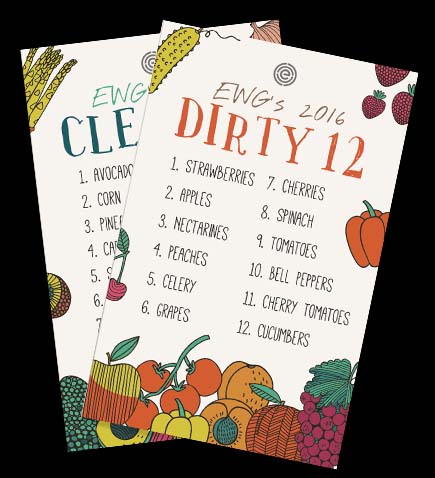WASH FRUITS and VEGGIES
BEFORE COOKING OR EATING?
Should we wash fruits and veggies before cooking or eating? This is a very good question. We, as consumers, have been advised to be wary of many of the fruits and vegetables we buy at the local supermarket because of the wide variety of pesticides, some possibly toxic, that may have remained behind as residues on the produce after harvest.
But how many of us are able to grow our own produce or buy organically grown fruits and vegetables from a local farmer or farmers’ market? And what about those who cannot afford to pay the extra dollars for organic fruits and veggies which presumably are safer? (There is a bit of controversy about that as well!)
WHAT ARE WE TO DO ABOUT THIS?
Obviously, we cannot stop eating fruits and vegetables! The health benefits of eating these foods may outweigh the risks of pesticide exposure but we still need to lower that risk as much as possible, especially for our children and older adults.
One way to do this is to make sure to wash fruits and veggies before cooking or eating, especially important if they are not labeled as ‘organic.' (It is a good idea to wash organic produce as well, since it is not always clear if the produce has really been grown without any pesticides at all.)
Also, please be aware washing only removes pesticides (and dirt and bugs) on the surface, not those that have seeped below the skin or produce grown with genetically engineered seeds.
TO WASH FRUITS and VEGGIES--
COMMERCIAL SPRAYS OR HOMEMADE?
A plethora of ‘organic fruit and veggie sprays’ can be
found in the market today and homemade do-it-yourself sprays and soak recipes can
be found all over the Internet. Studies have been done that suggest just
rinsing in cold water can remove most pesticides.
But for those of us who want to be sure we are getting as much of the pesticides as well as bugs and dirt out when we wash fruits and veggies (whether organic or non-organic), DIY homemade sprays and soaks that are easy and inexpensive to make would seem to be a good option. (If you should prefer store-bought sprays, be sure to read the ingredients carefully to avoid unwanted chemicals).
HOMEMADE SPRAYS TO WASH FRUITS and VEGGIES
The recipes listed below can not only clean the produce but some also help the produce to stay fresh and crisp longer:
SPRAY #1:
- 1 tablespoon fresh lemon juice
- 1 tablespoon baking soda
- 1 cup water
Put all ingredients into a spray bottle (it will foam) and shake gently to mix.
Spray on produce, allow to sit for 2-5 minutes, then rinse under cold water.
SPRAY #2
- 1 cup water
- 1 cup vinegar
- 1 tablespoon baking soda
- 20 drops grapefruit seed extract (optional and a natural antibacterial which can be found in health-food stores or the health-food section of a supermarket).
SOAK:
- ¼ cup vinegar
- 2 tablespoons salt
Fill a clean sink with cold water. Add in vinegar and salt and swish around with your hands. Place produce in and let soak for approximately 30 minutes. You will find this soak will draw out bugs, dirt, and even some wax as well.
HOW DO WE KNOW WHICH
FRUITS & VEGGIES HAVE THE
LEAST
CONTAMINATION?
To lower our risk of pesticide contamination, it is
important to be aware of which fruits and vegetables have the most pesticide
residues. These are the ones we should buy organic if at all possible. The EPA
(Environmental Protection Agency) does restrict the use of most toxic
pesticides but they are still being detected on some foods.
A reliable source for this information may be the EWG, the Environmental Working Group. This is an American environmental organization specializing in research and advocacy in the areas of toxic chemicals. Its mission is ‘to use the power of public information to protect public health and the environment.’
The organization periodically publishes its list of the ‘dirty
dozen’ and the ‘clean fifteen’ to help consumers make informed choices about
the safety of the fruits and vegetables they purchase and consume.
Click the following links for the EWG Dirty Dozen and Clean Fifteen as well as for the
Full List of foods tested by the USDA and the FDA and analyzed and ranked by
the EWG.
A NOTE ABOUT GMOs
Consumers should be aware that GMO or genetically modified plants such as field corn and soy may not be found in the produce section of grocery stores but do find their way into many processed foods.
GMOs that can be found in the produce sections of some American supermarkets include zucchini, Hawaiian papaya, and some varieties of sweet corn. Remember that U.S. law does not now require the labeling of GMO products, so it is most likely better to buy the organically grown versions of these.
There is also some evidence that domestically grown summer squash and leafy greens, specifically kale and collard, are commonly contaminated with pesticides exceptionally toxic to the nervous system.
Research on GMOs and their effect on our health is ongoing.
"The Cleanest Clean You've Ever Seen."
by
ABC Oriental Rug & Carpet Cleaning Co.
130 Cecil Malone Drive Ithaca, NY 14850
607-272-1566

Ken and Harriet Adams
Owners of ABC
130 Cecil Malone Drive Ithaca, NY 14850
For directions, Click Here.
OPEN:
Mon through Thur-8am to 5pm, Fri-8am to 4:30pm
Weekends-1st & 3rd Saturdays10am to 1pm
ABC Oriental Rug is on Facebook!
We regularly post tips and information about your carpet, rugs, upholstery, and tile and grout so please visit us often.
We update our Facebook page with our latest discounts and we are also offering exclusive promotions to our Facebook fans. These are limited and short notice promotions.
When you like our page, you will also be able to claim your special gift from us!
"Like Us"
on Facebook
and find out
what's going on!

ABC
Carpet & Rug
Spotting Guide
Did you know that our ABC Responsible Care Spotter can get those pesky spots out of your carpet and will work equally as well on your clothes and upholstery?
Stop by our office and pick one up. They are $5.00 + Tax but if you have carpets or upholstery cleaned in your home or business, just request a free one from your Technician.
And don't forget to fill out the form above to download your free ABC Spotting Guide!

GIVE THE
GIFT OF CLEAN!

Why not think 'outside the box' and give
a Gift Certificate for professional carpet, upholstery, or tile
& grout cleaning from ABC for any special occasion!
Does a special person have a favorite area rug or oriental rug that needs cleaning or repair? Just give us a call. You'll make their day!
Bring in the mats from a car and we'll clean them as well.
Contact
us if you live in the Ithaca, NY or surrounding areas and we will
tailor a special gift certificate just for you for any Special Occasion.



